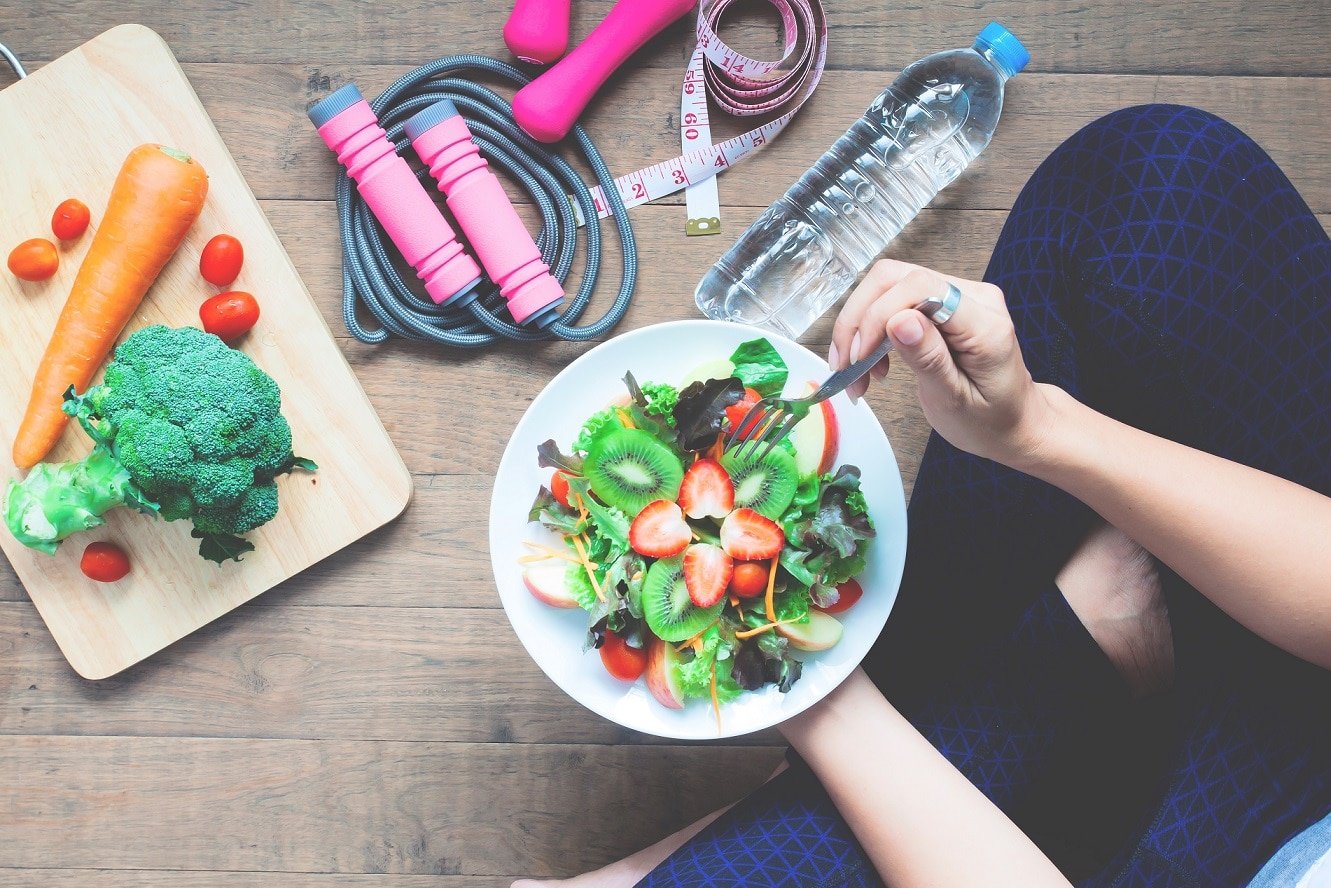We will soon reach the tragic milestone of 5 million cases.” – Dr. Mike Ryan head of WHO’s emergencies program. Just one of the tragic updates which now animate our daily lives. In the midst of the COVID-19 pandemic, No greater question has been posed about the quality of our lives than that of the strength of the human immune system. Whilst at present some drugs have proven effective at neutralizing the wuhan virus, It is important to explore ways in which we can improve our chances at survival and good health during the current lockdown. One vital way to do this amongst many others is by adopting a healthy and nutricious diet. A healthy diet especially in the pandemic does mean such strict limitations , deprivations, or starvation which eventually could have the opposite effect of malnutrition, mental distress, a weak immune system and in worse cases organ breakdown. A healthy diet is one which provides a balnced variety of nutrients, improves your health, energy levels and leaves you feeling great and in a good mood after each meal. It is very important to note that whilst a variety of specific foods or nutrients have been shown to have a beneficial effect on mood, it is your overall dietary pattern combining the various nutricious food groups together that is most important in providing the most beneficial positive and useful outcomes possible. An Ideal example is the Healthy Eating Pyramid developed by the Harvard School of Public Health which represents the latest nutritional science as shown below.


In order to prevent such horrific outcomes and promote a general wellness during this pandemic as well as boosting energy and overall mood, Here are lists of procedures and food groups you can include or use in creating your overall meal plans to enable you survive better and thrive healthwise during and after this pandemic.
- PROTEINS as a food group provide energy and support your mood and cognitive functions. It’s a vital nutrient required for building, maintaining, and repairing tissues, cells, and organs throughout the body. When you eat protein, it is broken down into the 20 amino acids that are the body’s basic building blocks for growth and energy. The amino acid tryptophan influences mood by producing serotonin, which can reduce symptoms of depression and anxiety and improve overall cognitive function. Protein gives you the energy to get up and go and keep going! The sources of protein for dietary consumption are generally divided into two categories being plant based protein and animal based protein. For animal based protein sources we have meat, poultry, fish, eggs, and dairy. For plant based protein sources we have beans, nuts, vegetables and grains among many others.
- FIBER. Eating foods high in dietary fiber (grains, fruit, vegetables, nuts, and beans) can help you stay regular and lower your risk for heart disease, stroke, and diabetes. It can also improve your skin and even help you to lose weight. Generally Fibre comes in two varieties being insoluble and soluble fibre. Insoluble fiber does not dissolve in water. It is the bulky fiber that helps to prevent constipation, and is found in whole grains, wheat cereals, and vegetables such as carrots, celery, and tomatoes. Soluble fibre on the other hand does dissolve in water and helps control blood sugar levels and reduce cholesterol. Good sources include barley, oatmeal, beans, nuts, and fruits such as apples, berries, citrus fruits, and pears. Dietary fiber provides certain benefits to the human body when consumed and injested such as the fact that it normalizes bowel movements by bulking up stools and making them easier to pass. This can help relieve and prevent both constipation and diarrhea. Eating plenty of fiber can also reduce your risk for diverticulitis (inflammation of the intestine), hemorrhoids, gallstones, kidney stones, and provide some relief for irritable bowel syndrome (IBS). Fire particularly insoluble fiber from cereals can lower your risk for type 2 diabetes. If you already have diabetes, eating soluble fiber can slow the absorption of sugar and improve your blood sugar levels. Also when you fill up on high-fiber foods such as fruit, you’ll also have more energy for exercising.
- CALCIUM. Calcium is a key nutrient that many of us overlook in our diets. Almost every cell in the body uses calcium in some way, including the nervous system, muscles, and heart. Your body uses calcium to build healthy bones and teeth, keep them strong as you age, send messages through the nervous system, help your blood clot, your muscles contract, and regulate the heart’s rhythm. As well as leading to osteoporosis, not getting enough calcium in your diet can also contribute to anxiety, depression, and sleep difficulties. Whatever your age or gender, it’s vital to include calcium-rich foods in your diet, limit those that deplete calcium, and get enough magnesium and vitamins D and K to help calcium do its job.
- FATS. Fat is a type of nutrient, and just like protein and carbohydrates, your body needs some fat for energy, to absorb vitamins, and to protect your heart and brain health. For years we’ve been told that eating fat will add inches to your waistline, raise cholesterol, and cause a myriad of health problems. But now we know that not all fat is the same. Bad fats such as artificial trans fats and saturated fats cause weight gain, clogged arteries, an increased risk of certain diseases and so forth while Good fats such as unsaturated fats and omega-3s help you manage your moods, stay on top of your mental game, fight fatigue, and even control your weight. Understanding the difference between bad fats and good fats is essential for creating an effective dietary plan for staying healthy during the COVID-19 pandemic.
- CARBOHYDRATES are one of your body’s main sources of energy. But most should come from complex, unrefined carbs (vegetables, whole grains, fruit) rather than sugars and refined carbs. Cutting back on white bread, pastries, starches, and sugar can prevent rapid spikes in blood sugar, fluctuations in mood and energy, and a build-up of fat, especially around your waistline. It is important to note that simple or refined carbohydrates sch as table sugar and syrups are linked to drastically increased risk of many diseases, including obesity, heart disease and type 2 diabetes where as complex carbohydrates such as unrefined whole grains, spinach, green beans, Brussels sprouts, celery, tomatoes, legumes, peanuts, cashews, walnuts, apples, berries, citrus fruit, bananas and pears contain longer chains of sugar molecules and as such take longer to digest and breakdown within the body. complex carbohydrates help prevent serious disease, aid with weight-loss and can help guard against type 2 diabetes and cardiovascular problems in the future.
- VITAMINS AND MINERALS are essential nutrients because they perform hundreds of roles in the body. However there is a fine line between getting enough of these nutrients which has a positive effect on your health and getting too much of these nutrients which can end up harming you quite badly. Vitamins and minerals help shore up bones, heal wounds, and bolster your immune system. They also convert food into energy, and repair cellular damage. Vital sources of vitamins and minerals include Multi-vitamin supplements and several or drugs which must be taken with a doctors prescription. Vitamin sources are generally divide into two categories being Water soluble vitamins and minerals whose sources available in ham, soymilk, watermelon, acorn squash, milk, yogurt, cheese, whole and enriched grains, cereals, chicken, whole grains, broccoli, avocados, mushrooms e.t.c and Fat soluble Vitamins and minerals whose sources are also available in beef, liver, eggs, shrimp, fish, fortified milk, sweet potatoes, carrots, pumpkins, spinach, mangoes, Cabbage, eggs, milk, spinach, broccoli, kale, vegetables oils, leafy green vegetables, whole grains, nuts, Fortified milk and cereals, fatty fish.
To set yourself up for success, try to keep things simple. In order to effectievly combine these nutrients, the following steps and guideline should be duely headed and verified with a doctors help if possible.
- Prepare more of your own meals. Cooking more meals at home can help you take charge of what you’re eating and better monitor exactly what goes into your food. You’ll eat fewer calories and avoid the chemical additives, added sugar, and unhealthy fats of packaged and takeout foods that can leave you feeling tired, bloated, and irritable, and exacerbate symptoms of depression, stress, and anxiety.
- Make the right choices. When cutting back on unhealthy foods in your diet, it’s important to replace them with healthy alternatives. Replacing dangerous trans fats with healthy fats (such as switching fried chicken for grilled salmon) will make a positive difference to your health. Choose the foods to provide the specific health effects of you are looking for.
- Read the label. It’s important to be aware of what’s in your food as manufacturers often hide large amounts of sugar or unhealthy fats in packaged food, even food claiming to be healthy. Be conscious of what products and ingerdients you are putting into your body.
- Focus on how you feel after eating.This will help foster healthy new habits and tastes. The healthier the food you eat, the better you’ll feel after a meal. This also helps to foster mindfulness, relaxation and stress relief. It is important to note that the more junk food you eat, the more likely you are to feel uncomfortable, nauseous, or drained of energy.
- Drink plenty of water. Water helps flush our systems of waste products and toxins, yet many of us go through life dehydrated thus causing tiredness, low energy, and headaches. It’s common to mistake thirst for hunger, so staying well hydrated will also help you make healthier food choices. Plus it really leaves you feeling great, well regulated and at ease.
Hopefully Thes tips have been of immense help to you in these difficult times. Remember to follow the covid-19 guidelines. Adequate social distancing and hand washing are a must. Don’t be alarmed. You are stronger and smarter than you know and realise. Even this situation will be temporary. You will get through this. Stay safe and stay healthy.




